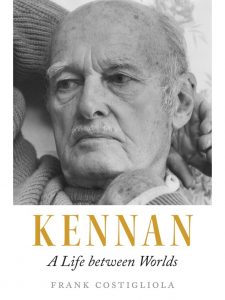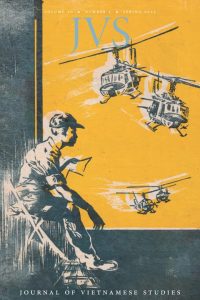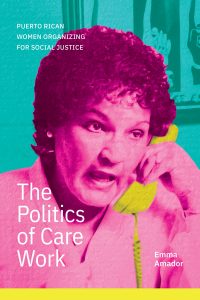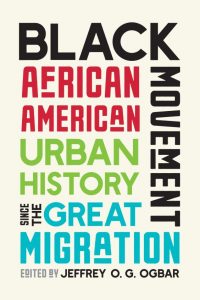Professor Helen Rozwadowski was interviewed for the Blue History Network Podcast, which is now up on Spotify and the network’s website. In this podcast, Professor Rozwadowski delves into “a wide variety of subjects, from oceanography in the Nineteenth century to how we, in the present, bring ocean history to the attention of the public“. She also discusses her books, Fathoming the Ocean and Vast Expanses.
Author: Stockford, Lillian
Manisha Sinha Quoted In Guardian Article about First 100 Days
On May 2nd, Professor Manisha Sinha was quoted in the Guardian article, “Trump 100 days: White House action plan makes Project 2025 look mild“. The article, written by Rachel Leingang, looks at the role that the policies outlined in Project 2025 are playing the first 100 days of Donald Trump’s second presidential term.
To read the article: Here
Frank Costigliola’s Recent Book Wins Sharon Harris Book Award
Congratulations to Professor Frank Costigliola, whose recent biography of US diplomat and strategist George Kennan was just named a co-winner of the Sharon Harris Book Award fr om the UConn Humanities Institute.
om the UConn Humanities Institute.
The book has been warmly received by scholars and the reading public, including an enthusiastic recent review in The New York Review of Books. An unpaywalled version of the review can be found here: The Enigma of George Kennan
Nu-Anh Tran Editor of Special Journal Issue
On the 50th anniversary of the Vietnam War, a special issue of the Journal of Vietnamese Studies offers thirteen original translations of Vietnamese songs, poe ms, memoirs, and fiction about the end of the war and its aftermath. Co-edited by Nu-Anh Tran and Trinh M. Luu, the collection is ideal for teaching at the college- and high school-level. Browse the issue at https://online.ucpress.edu/jvs/issue/20/2
ms, memoirs, and fiction about the end of the war and its aftermath. Co-edited by Nu-Anh Tran and Trinh M. Luu, the collection is ideal for teaching at the college- and high school-level. Browse the issue at https://online.ucpress.edu/jvs/issue/20/2
Alexis Dudden Quoted on South Korean Democracy
Earlier this month, Professor Alexis Dudden was quoted in the New York Times article, “How South Korea’s Democracy Prevailed Over a Reckless Leader”. The article, written by Choe Sang-Hun, analyzes the attempted coup by former South Korean president Yoon Suk Yeol and what its outcome says about democracy in South Korea.
To read the article: Article
The Politics of Care Work
Emma Amador, Author
In The Politics of Care Work, Emma Amador tells the story of Puerto Rican women’s involvement in political activism for social and economic justice in Puerto Rico and the United States throughout the twentieth century. Amador focuses on the experiences and contributions of Puerto Rican social workers, care workers, and caregivers who fought for the compensation of reproductive labor in society and the establishment of social welfare programs. These activists believed conflicts over social reproduction and care work were themselves high-stakes class struggles for women, migrants, and people of color. In Puerto Rico, they organized for women’s rights, socialism, labor standards, and Puerto Rican independence. They continued this work in the United States by advocating for migrant rights, participating in the civil rights movement, and joining Puerto Rican-led social movements. Amador shows how their relentless efforts gradually shifted the field of social work toward social justice and community-centered activism. The profound and enduring impact of their efforts on Puerto Rican communities underscores the crucial role of Puerto Rican women’s caregiving labor and activism in building and sustaining migrant communities.
Black Movement: African American Urban History since the Great Migration
Jeffrey O. G. Ogbar, Editor
The University of North Carolina Press, 2025
Description:
The Great Migration of African Americans from the South to northern and western cities between 1915 and 1970 fundamentally altered the political, social, and cultural landscapes of major urban centers like New York, Chicago, Philadelphia, and Detroit, and changed the country as well. By the late twentieth century, Black people were mayors, police chiefs, and school superintendents, often at parity and sometimes overrepresented in municipal jobs in these and other cities, which were also hubs for Black literature, music, film, and politics.
Since the 1970s, migration patterns have significantly shifted away from the major sites of the Great Migration, where some iconic Black communities have been replaced by mostly non-Black residents. Although many books have examined Black urban experiences in America, this is the first written by historians focusing on the post–Great Migration era. It is centered on numerous facets of Black life, including popular culture, policing, suburbanization, and political organizing across multiple cities. In this landmark volume, Jeffrey O. G. Ogbar and his contributors explore the last half century of African American urban history, covering a landscape transformed since the end of the Great Migration and demonstrating how cities remain dynamic into the twenty-first century.
Contributors are Stefan M. Bradley, Scot Brown, Tatiana M. F. Cruz, Tom Adam Davies, LaShawn Harris, Maurice J. Hobson, Shannon King, Melanie D. Newport, Jeffrey O. G. Ogbar, Brian Purnell, J. T. Roane, Chanelle Rose, Benjamin H. Saracco, and Fiona Vernal.
David Evans Successfully Defends Dissertation
On April 2nd, David Evans successfully defended his dissertation, “Hunger for Rights: The Human Right to Food in the Post-War Era”.
From the abstract:
In 1948, the Universal Declaration of Human Rights proclaimed a new era for international law and the expectation of human dignity, and with it the human right to adequate food. This dissertation maps the formulation and evolution of the idea of the right to food. It examines the ways political and religious leaders, internationalists, activists, humanitarians, and scholars imagined, debated, and worked to realize this human right from the 1930s to the 1980s. In its initial formulation, United Nations leaders envisioned the right to food’s realization as the end goal for economic development policy directed at the less developed world. Starting in the 1970s the right to food evolved and different groups embraced it as a framework for addressing global hunger in ways that best matched their political and economic agendas. Political conservatives in the United States rejected human rights policies that required state intervention and instead argued that the right to food would be realized through the economic prosperity and food security generated by free trade. Other advocates operating within the United Nations, along with various religious and secular non-government organizations and scholars, envisioned the right to food as a means to address global inequities and to highlight the political and economic injustices that led to food insecurity. I argue that the right to food evolved from its inception as a component of a broadly understood right to an adequate standard of living, to a fully articulated and fundamental human right that challenged the assumptions and structures of the world economic and political order from which it arose.
Congratulations to David Evans on this impressive achievement!
Manisha Sinha Interview on The Rise and Fall of the Second American Republic
Today, Professor Manisha Sinha‘s interview with Salon, an online news website, was published. The article, which can be read here, connects Professor Sinha’s work to the modern day and delves into her book “The Rise and Fall of the Second American Republic, Reconstruction 1860-1920”.
Prof Luzzatto to Speak on Primo Levi at U Chicago
Later this month, Professor Sergio Luzzatto will be delivering the Virgilio Lectures at the University of Chicago, sponsored by the Romance Languages and Literatures Department. He will be giving three different lectures, on April 16, April 18, and April 22, on “Primo Levi and His Auschwitz Companions: Between History and Literature.” The lectures will draw on his recently published book Primo Levi e i suoi compagni (Donzelli, 2024). While the lectures will be in Chicago, they can be followed virtually on line as well. Full details can be found on the U Chicago website: https://events.uchicago.edu/event/246646-virgilio-lecture-series-with-sergio-luzzatto-.
Congratulations to Professor Luzzatto on this important new book, and major honor.

